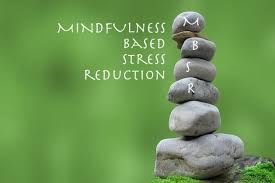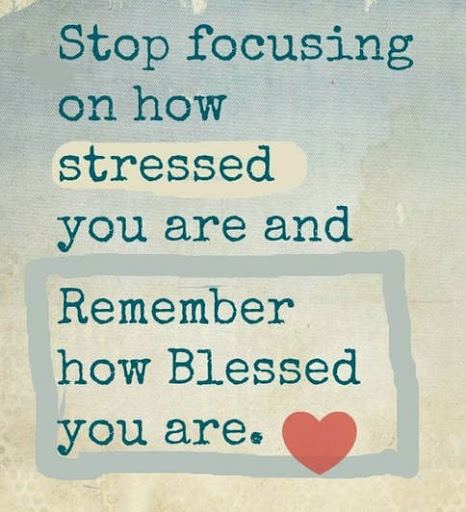
Do daily distractions leave you feeling unfocused and stressed? Take a breath. Here are three great ways to start taking back control.
Succumbing to distraction over and over, though, can build stress, foster unhappiness and even lead to depression. So if you’re one of the many looking to figure out how to handle distractions and improve your ability to focus, take comfort in the fact that research has shown a way forward.
Does it seem like you can’t complete even the simplest task without being distracted? Texts, emails, social media alerts, noisy colleagues, ringing phones… Friends, you are not alone.
Stress is an unfortunate but often unavoidable side effect of our busy lives. Having on-hand methods for managing stress is a good way to combat its physical, mental, and emotional impact. You’ll find excellent advice to do just that on this year’s best stress relief blogs. They stand out for their active intention to educate, inspire, and empower people looking for stress relief.
Resilience means being able to adapt to life’s inevitable stresses and setbacks. In other words, you bounce back quickly when something goes wrong. If you frequently feel unhappy, or often wish you could take back the way you reacted to something, you may need to work on your resiliency.
Here are tactics you can use to raise your resiliency threshold and get more enjoyment from life.
mindfulness.
Mindfulness means maintaining a moment-to-moment awareness of where you are and what you’re doing. At work, for instance, it means you’re focused on the project in front of you; walking with a friend, it gives you the ability to really focus on your surroundings and your conversation. Scientists have shown that you can actually train your brain to become more mindful. Like anything else, it just takes practice.
Ready to get started? These three practices have all proven useful in building mindfulness.
1. Mindful movement
The hallmarks of mindful movement, or yoga — structured breathing, controlled movement, mental focus — make it sound like the perfect antidote to stress and distracted thinking, but does science back that up? Yes, over and over again. Many studies have found that, after beginning a yoga program, people feel less stressed, more focused, even more optimistic. In fact, yoga’s been found to be even more beneficial to people who’re highly stressed.
In today’s so-called attention economy, the world is actually being designed to distract you. Everybody wants your attention, and they want it right now. But you can take back control of your focus, shed that stress, and wake up happier to meet your day.
2. Meditation

Meditation aims to increase your awareness of the present moment and help you develop a gentle, accepting attitude toward yourself. Regular meditation practice has been shown to actually alter the brain — in a good way. One study showed that the area of the brain dedicated to regulating your emotions was significantly larger in meditators. In other words, in a world determined to trip you up with distractions and unpleasant surprises, meditation can help you stay more positive and more focused.
3. Mindfulness-based stress reduction (MBSR)

MBSR training has become a recognized way to help people learn to avoid distractions and increase their attention on the task in front of them. It can also help improve memory, motivation and autonomy — all things likely to make you (and your boss) happier. MBSR programs typically include breathing, stretching and awareness exercises.
4. Create awareness. Becoming more aware of your thoughts and actions can help you recognize patterns and areas where you can improve. Plus, it allows you to acknowledge what you’re already doing well. The next time you feel stressed, simply pause and notice your reaction. You might ask yourself, “Where is this coming from?” Once you’ve done that, you can choose another response or way of thinking.
Try these tips to strengthen your personal awareness:
- Listen to your body. How does your body react to stressful situations? Do you clench your jaw or teeth? Do you notice your heart rate increasing? Are your thoughts racing, or are you repeatedly worrying about the same issue?
- Write it down. Make a list of your signs and symptoms of stress. This gives you a moment to check in with yourself and pause before you respond.
- Reflect. Take note of what your mind is telling you in the moment of stress. You can then question if what you’re telling yourself is true, real or rational. Stress often triggers irrational thoughts. By noticing them, you can step back and gain perspective.
5. Focus your attention.

A powerful technique for dealing with stressful situations is to cultivate your attention to focus on the present moment. Doing so reduces the mind’s tendency to wander and ruminate on the what-if thoughts that often add to stress. Focusing your attention takes practice, especially in a world that’s filled with text messages, social media and other distractions. To develop this skill, try focusing on the details in your everyday surroundings and experiences. Discover new aspects of old haunts and habits. Find the beauty in the mind.
Try these ideas:
- Take a walk around your neighborhood and see it through fresh eyes. Pay attention to your route. Acknowledge the bark and branches of trees, the front doors you pass, the landscaping rocks, the neighbor’s dog barking. Be fully present and try to take in as many details as you can.
- Once you’re home, reflect on how that walk was different than usual. How do you feel?
- Look for points in your day where you can practice cultivating your attention, such as mindfully eating your dinner by engaging your senses to notice the taste, aromas and textures of each dish. Or try focusing on your breath, noticing the coolness of the air as you inhale and the warmth on your exhale. Can you feel the rise and fall of your chest with each breath? You’ll likely be surprised at what you notice when you simply take the time to pay attention.
6.Dont pass judgment.

for at least 3 minutes. Do you find yourself judging and assessing everything you experience? “This would be better if …” “They should have …” “I would have done it this way …” Combat this “righting reflex” by challenging yourself to simply experience someone or something for three minutes without trying to critique or improve. When you delay judgment, you create space for gratitude. You may find that what’s in front of you is good enough — or enjoyable as is.
